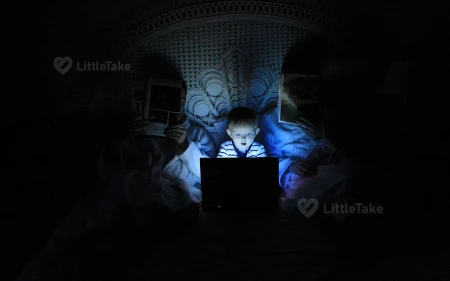
Online Privacy Tips for Kids & Parents
As a digital marketing assistant at littletake.com, I understand the importance of online privacy, especially when it comes to protecting our children. The internet can be a wonderful resource for learning and entertainment, but it also poses risks to our privacy and security. In this article, we'll discuss some essential online privacy tips for both kids and parents to help create a safer digital environment.
1. Educate Your Kids About Online Privacy
Start by teaching your children about the importance of protecting their personal information online. Explain that sharing their full name, address, phone number, or school can put them at risk for identity theft or unwanted contact from strangers.
2. Use Parental Controls and Monitoring Tools
Take advantage of parental control software and built-in features on devices to monitor and limit your child's online activity. These tools can help you filter inappropriate content, restrict access to certain websites, and monitor your child's online communication.
3. Set Privacy Settings on Social Media Accounts
Help your child adjust the privacy settings on their social media accounts to limit the visibility of their posts and personal information. Encourage them to only accept friend requests from people they know and trust in real life.
4. Encourage Strong Passwords
Teach your child the importance of using strong, unique passwords for their online accounts. A strong password should include a combination of upper and lowercase letters, numbers, and special characters. Remind them not to share their passwords with anyone, even friends.
Real-life Example: 12-Year-Old Lily Learns About Online Privacy
When Lily, a 12-year-old girl, started using social media to connect with her friends, her parents took the opportunity to teach her about online privacy. They explained the potential risks of sharing personal information and helped her adjust her privacy settings to protect her account.
Together, they also discussed the importance of strong passwords and being selective about online friendships. As a result, Lily became more aware of her online privacy and now takes the necessary precautions to stay safe on the internet.
Additional Tips for Parents
- Keep the computer or device in a common area of the home to monitor your child's online activity more easily.
- Establish rules for internet use, such as the websites they can visit and the amount of time they can spend online.
- Maintain an open dialogue with your child about their online experiences and encourage them to share any concerns or issues they encounter.
Conclusion
Protecting your child's online privacy is crucial in today's digital world. By educating them about the potential risks and implementing appropriate safety measures, you can help create a secure online environment for your child to learn, explore, and connect with others.













